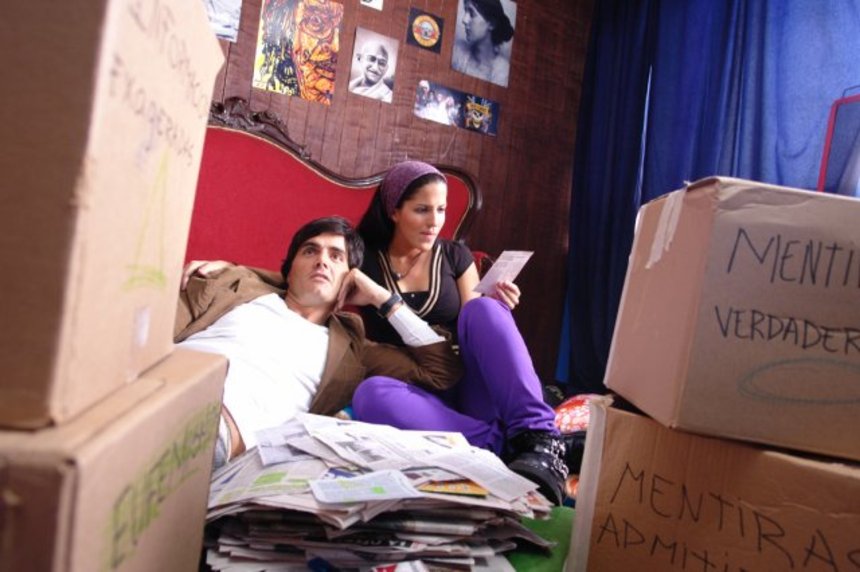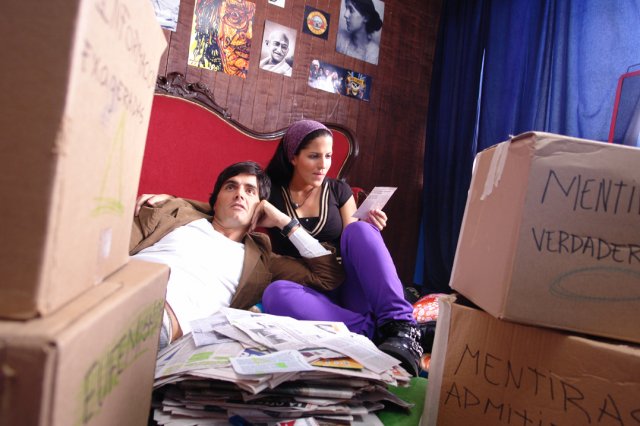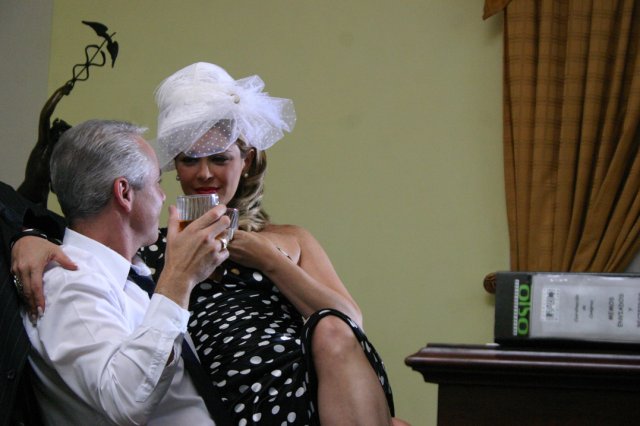You Don't Fool Me: THE PUREST OF LIES Review

All of this provides context for the fact that The Purest of Lies is the fourth film by Carlos Malave in less than six years. That, by Venezuelan standards, is quite a lot. But what is more interesting is the way that Malave shifts through genres from film to film and how he even seems to change from one genre to another within the same film.
Malave's feature debut was Por un Polvo (2006) [Dying to Get Laid], a thriller that sometimes went for pretty straight-up comedy. He then went on to make Las Caras del Diablo (2009) [The Devil's Faces] a police procedural that sometimes turned into a revenge flick. Next was El Último Cuerpo (2011) [The Last Corpse]which jumped from biopic to
police procedural and then to suspense all in one sitting.
With The Purest of Lies, Malave has done it again. This time he moves from rom-com to drama in less than ninety minutes. In most of Malave's previous films the blending of genres works very nearly flawlessly however to successfully change genres you need to be able to handle each individual genre well on its own as well. And while Malave surely has a
grip on the comedy part of the film - all his films had a comedic element except perhaps The Devil's Faces - when he need to go in the direction of drama things start to fall apart.
Juana (Mariaca Semprún) has been given a cruel gift, an accident giving her with a supernatural ability to know when people are lying. This, of course, creates a distance between her and her parents, and later on in life she is unable to maintain any long-term relationships. Juana learns, the hard way, that this 'power' comes with one exception. If she falls in love she can't tell if the person she is in love with is telling lies. We then fast forward several years and find Juana working as a some kind of customer service operator at a publicity agency. I swear to God that I'm not sure if this kind of work exist at all in the real world, at least not in Venezuela.
Juana's employer exploits her, basically treating her as a slave at work. When Juana confronts her boss about a promised pay raise he just says that because the company - and the country - is going through a severe recession that the raise is impossible at the time. To calm her he just gives her some lottery tickets sponsored by the prime time show of the moment, a super trashy talk show. Things are complicated when one of those lottery tickets turns out to be an actual winner. When her employer learns the ticket is a winner he tries to take it back but Juana refuses.
So he goes to several TV shows, including the trashy one, to tell the supposed truth: that Juana is a thief. And soon enough Juana is in eye of a storm, the whole thing turning into a media circus that will force Juana to face her employer, her family and her past.
Even though the screenplay wasn't written by Malave himself, he knows how to make the most of it by portraying the characters in a non judgemental way. The characters in Malave's movies are neither bad or good, just flawed and contradictory people. However Malave has problems mixing the genres here, having difficulty balancing romantic comedy and heavy drama. Even in the supposedly darkest moments of the story - and there are quite a few involving murder and incest - Malave approaches these without the seriousness I think they require.
That's my only problem with this, and his previous movies, that he doesn't go full throttle when he needs to. There's a section of the movie that starts to delve into the nature of Venezuelan television itself and how even the worse of human tragedies can be turned into a spectacle, but the movie never goes deep in that regard. At the end is just a half-baked assertion of how Malave sees television.
On a side note, this is perhaps his best looking film - although I'm sure he filmed this on digital video. Malave has stated his admiration for Robert Rodriguez and his way of making movies on the cheap. And certainly that shows on his first three movies, almost to the point of b-movie level. In The Purest of Lies, nevertheless, Malave makes the most of his budget. Especially when it comes to the staging of certain scenes that we've seen many, many times before - like people talking on the phone - he give these a spin that keeps the story moving forward.
While Malave seems to have gained a real sense of storytelling, I think he is still struggling a grip on the genre changing dynamics. Of all the new Venezuelan directors working today he is one of the few to keep an eye on




Do you feel this content is inappropriate or infringes upon your rights? Click here to report it, or see our DMCA policy.









